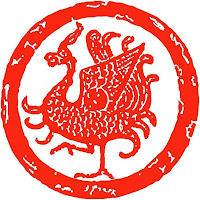Taiwan’s earliest earth god temple is located in Checheng Town, of Pingtung (屏東) county. A big difference between this temple and other earth god temples is that the Checheng temple has a grand appearance of palace-style architecture.
 The temple was built in 1662 (1st year of the Kangxi [康熙] Emperor). The Han people had come to Taiwan from Fujian Province in China to reclaim land. At that time, the Checheng area was still infested with disease. In order to reclaim peace and serenity, ancestors from Quanzhou (泉州) sculpted statues of the “Fude Zhengshen (福德正神)” God and made offerings at Checheng temple. At that time the temple was called the Jingsheng Ting (敬聖亭), which was the start of the Fu’an temple (福安宮) in Checheng. At the year of Jiaqing (嘉慶), Jingsheng Ting was to be renovated by the local people, and the name was to be changed to Fu’an Temple. In 1951 the name officially became Fu’an Temple.
The temple was built in 1662 (1st year of the Kangxi [康熙] Emperor). The Han people had come to Taiwan from Fujian Province in China to reclaim land. At that time, the Checheng area was still infested with disease. In order to reclaim peace and serenity, ancestors from Quanzhou (泉州) sculpted statues of the “Fude Zhengshen (福德正神)” God and made offerings at Checheng temple. At that time the temple was called the Jingsheng Ting (敬聖亭), which was the start of the Fu’an temple (福安宮) in Checheng. At the year of Jiaqing (嘉慶), Jingsheng Ting was to be renovated by the local people, and the name was to be changed to Fu’an Temple. In 1951 the name officially became Fu’an Temple.During the reign of Emperor Qinglong (乾隆), to quell the Lin Shuangwen (林爽文) event, the Qianlong Emperor sent troops crossing Taiwan destroy the chaos. Unexpectedly soldiers fell sick. According to legend, Qianlong led the soldiers of Imperial Commissioner Fukang'an (福康安) to plead with Fudezhengshen God in Checheng. The soldiers suddenly were healed one after another. In order to repay the mercy they had been shown, Qianlong gave Fude Zhengshen his crown and robe. Wearing the robe and crown, the God lookes very different from the Earth God of other temples. Qinglong also bestowed a stone of praise on the earth god’s shrine so as to manifest the validity of its miracles. There are many important historical remains in the temple such as woodcarvings from the time of Xianfeng (咸豐). In the main hall on the right wall is an "Admiral Liu monument (劉提督碑)" from 1871 (6th year of Tongzhi [同治] Emperor). Garrison General of Taiwan Zhen, Liu Mingdeng (劉明燈) was under orders to go to pacify in Taiwan and suppress the rebellions. He added a wing to the Fu’an Temple, and after stopping the rebellions he made a memorial plaque to thank the god for his help.
The Fu’an Temple has been expanded several times, and has spread all over Taiwan, each with a portion of the god’s spirit. Every year from February 8th through February 15th (lunar calendar), Fude Zhengshen’s birthday is celebrated. There are between 6 and 7 thousand parts of his spirit that travel back home, and are accompanied by thousands of people paying respect to the god. Each day all day one may hear the loud sound of firecrackers.
(From Council for Cultural Affairs)



